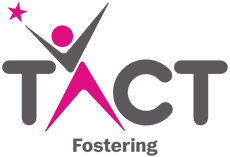Amanda Savage
Head of Education, TACT Fostering & Adoption
OFSTED has proposed a new draft framework to inspect school leaders on how well they prevent ‘off rolling’ pupils from their school register. Unfortunately, some of you will have come across the practice, when a school tries to persuade parents/carers/social workers to move the young person to another school or have them home educated.
Off rolling can occur just before an OFSTED inspection, as a way of the school improving their position in the league tables, and to ensure that inspectors do not see the reality of a lively classroom. Heaven forbid a pupil displays challenging behaviour for the inspectors to witness! However, it is important that schools are mindful that OFSTED inspections purely provide ‘independent, external evaluation’; they are not designed to replace the tiers of monitoring and support structures that should ensure schools work to a moral code, as well as providing good quality education for all the children at the school.
All Head Teachers are aware that no permanent exclusion should take place without the approval of the governors. However, the governors would not have to be notified if a parent ‘chooses’ to take their child ‘off-roll’. A vulnerable parent who is already struggling to manage their child’s needs, may feel ‘teachers know best’ and might therefore be likely to succumb to the pressure placed on them to agree to their child leaving the school. The school would then not only cease to have legal responsibility to provide an education for that young person, but also no longer needs to provide them with the support and daily interaction that the ‘hard to reach’ need more than compliant pupils ever could.
Foster carers and social care professionals will be all too aware that many of the young people in their care are safeguarded by being in school, and much of the information social services act upon is provided by schools who not only educate children, but also ensure that they are safe, well cared for and under the protection of adults during the day. In modern society it can be forgotten that education reform was much needed in the Victorian era to ensure that children were at school to take them off the streets, to safeguard them from danger or exploitation. Therefore, ‘off-rolling’ can have far reaching repercussions not only on the young person’s life, but upon those of their families and the community in which they live.
Schools must be able to self-govern in between OFSTED inspections and the ADCS must be mindful that the inspection process is about evaluation, rather than policing schools for any wrong doing.
About 10 years ago a local authority asked me to audit the status of all the children and young people who were being ‘home educated’ within the borough. To my horror I found some really concerning situations where social services should have been involved. I notified the Head of Children’s Services for the LA and brought about an agreement where no young person would be taken “off roll” when safeguarding concerns in the home had been raised.
Under the new framework, OFSTED could grade a school ‘inadequate’ as soon as a safeguarding concern is identified during an inspection. However, the ADCS feel that OFSTED should “retain a degree of discretion”. TACT feels that as far as safeguarding vulnerable children is concerned, there should be zero tolerance to any school breaching safeguarding policies. The bottom line is that our young people are far too precious for us to take any chances with. They have entered care to be protected from harm, not to risk suffering more, no matter how remote we feel the chance could be.
Therefore, I would not advocate a young person attending a school or college that has been graded ‘inadequate’ due to any safeguarding issue, whether it is in unlawful physical restraint or poor record keeping. There is never an excuse for not implementing a safeguarding policy as it is in place to protect children.
Any changes OFSTED make in challenging immoral or dangerous actions are a step in the right direction, but schools need to make sure that they fulfill their commitment to the children in their schools and that society need to take responsibility for raising every child as if they were our own.


